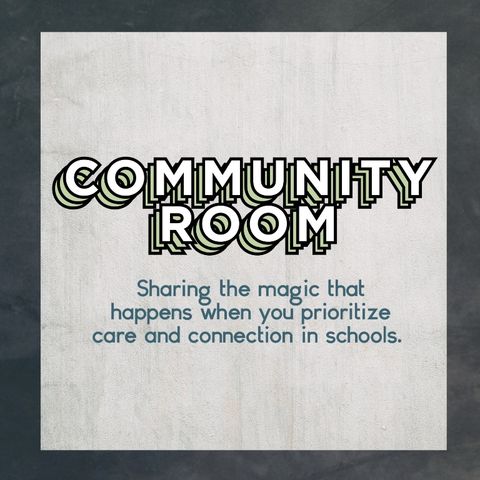15 SET 2022 · Welcome back everyone! We hope you got a chance to listen to the first part of our curated episode on “Following the Leaders”, which we released last week. So much wisdom in there! And today, we are beyond excited to introduce you to our first guest of this season.
We first read about our guest on the ASCD website several months ago, as she was listed as a speaker there. What we were most fascinated by was that she went into Fenger, charged with “turning the school around” with her team, and embarked on a journey, that led to, what some would say, were unorthodox practices, in an urban high school. There were important realizations about what was happening there for these students and families, and what could really make a difference. And she and her team made a huge difference, to say the least. . And … what she has done since she left Fenger, is extraordinary, and is making so much impact in Chicago . I don’t want to spoil the story, as we will ask about this when we talk to her in just a second, but we know that you, too, will find her story and journey so instructive and inspiring!
RESOURCES:
https://chicagobeyond.org/
https://www.npr.org/2020/07/04/887239218/former-chicago-principal-discusses-schools-reliance-on-police-officers
https://www.linkedin.com/in/liz-dozier/
https://twitter.com/lizdozier
QUOTE:
“We are a community of possibilities, not a community of problems. Community exists for the sake of belonging and takes its identity from the gifts, generosity, and accountability of its citizens. It is not defined by its fears, its isolation, or its penchant for retribution. • We currently have all the capacity, expertise, programs, leaders, regulations, and wealth required to end unnecessary suffering and create an alternative future.”
― Peter Block, Community: The Structure of Belonging
BIO:
From education to activism, Liz Dozier has spent her career working tirelessly to disrupt the culture of inequity that is often pervasive in urban neighborhoods. In 2016, Dozier launched Chicago Beyond, an impact investor that invests in ideas, individuals, and organizations working to ensure all young people have the opportunity to live a free and full life. Since its inception, Chicago Beyond has invested more than $40 million in ideas, individuals, and organizations that fight for all youth to achieve their fullest human potential.
Dozier’s ambition is born from her experiences as an educator in Chicago Public Schools. During her tenure as principal at Fenger High School, which at the time was known as one of the most violent and underperforming schools in Chicago, Fenger experienced a decrease in its dropout rate from 19% to less than 2%, a 40% increase in Freshman On-Track to graduate, and double-digit increases in attendance and the school’s state graduation rate.
Dozier's work has been featured in the New York Times Best Seller How Children Succeed by Paul Tough, CNN’s docu-series Chicagoland, Aspen Ideas Festival, the Kennedy Center Forum on Mental Health, The Obama Foundation Summit, and SXSW (South by Southwest).
You can find her on Twitter: @LizDozier


